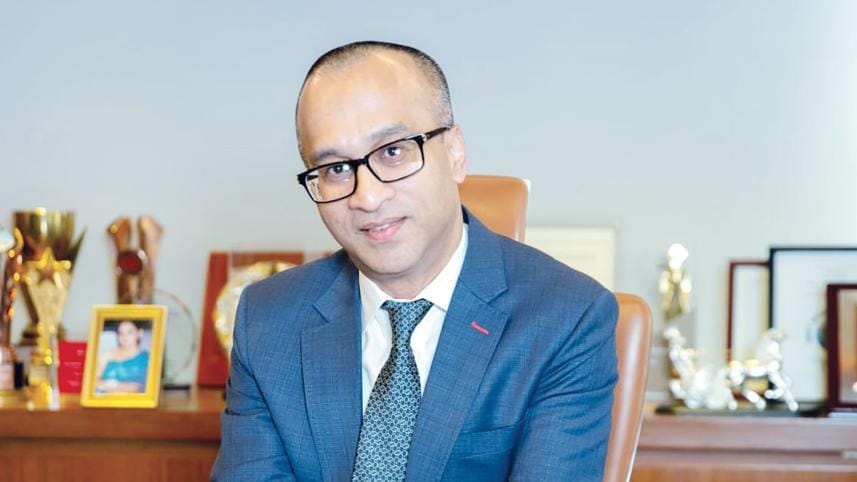“City Bank aims to foster a culture of innovation”

TDS: What is the current status of digitalization within your organization?
Mashrur Arefin (MA): City Bank has always been a pioneer in the digital space of banking activities. We were the first bank in Bangladesh to launch the mobile banking app Citytouch in 2013, offering over 100 services on it today. Currently, more than 70% of our customers are using one or more digital channels for their day-to-day banking activities.
We are also pioneers in offering the country's first digital loan in collaboration with bKash. This product is AI-driven. Additionally, we have the right infrastructure to provide all possible digital services to all segments of customers. For example, our corporate clientele uses Citylive, our SME clients use digital invoicing systems, our supply chain customers use digital financing solutions, our branch customers use electronic queue management service, and our debit card customers use virtual debit card generation service. In Malaysia, we use the CityRemit app for remitters who digitally send money home, and so on.
TDS: What challenges do you see in implementing digital transformation within the financial sector?
MA: Infrastructure is a challenge. By this, I mean ensuring reliable and widespread connectivity outside urban areas.
Digital literacy is another hindrance.
Cybersecurity is yet another. I see widespread misuse of individuals' data in Bangladesh. The respect for people's privacy is lacking.
Overall, financial inclusion or affordable access to financial services for all should be the medium-term goal of our digital transformation strategy. To achieve that, we should embrace collaboration with stakeholders by working closely with government agencies, private sector organizations, educational institutions, and communities to develop a comprehensive digital transformation plan that can help address infrastructure and literacy challenges. We should also prioritize investments in expanding network coverage, improving internet speeds, etc. There should also be incentives given by the government for digital adoption. This can come in the form of tax breaks or subsidies.
TDS: How does your organization guarantee security, encompassing cybersecurity, prevention of forgery, and the safety of data?
MA: We have a robust Cybersecurity Infrastructure. This includes firewalls, intrusion detection systems, encryption protocols, and regular security audits to identify and address vulnerabilities.
We have also adopted data encryption. We use industry-standard encryption algorithms to safeguard sensitive data, both at rest and in transit. We have also implemented a strict form of access control mechanisms to ensure that only authorized personnel have access to critical systems and data. This includes strong authentication methods like passwords, two-factor authentication, and role-based access control.
Plus, we employ real-time monitoring tools to detect and respond to any potential security incidents promptly.
TDS: How does digitalization contribute to addressing sustainability and the inclusion of unbanked individuals in the banking sector?
MA: Digitization enables banks to adopt more sustainable practices. By reducing paper-based processes and transitioning to digital transactions, banks can minimize their carbon footprint. Additionally, digital platforms facilitate access to sustainable investment options, promoting environmentally friendly initiatives.
Digital platforms, no doubt, allow for faster and more efficient loan processing, reducing the time and effort required to access funds. And there is no argument over the fact that digital technology has been instrumental in bringing unbanked individuals into the formal banking sector.
TDS: What future plans does your organization have to enhance digitalization?
MA: City Bank has a concrete plan to strengthen the existing IT infrastructure and scale it up on a continuous basis. We plan to launch comprehensive digital literacy programs, partnering with educational institutions, community organizations, and government bodies.
Cybersecurity will remain a priority for us. We have already started collaborating with cybersecurity experts to conduct regular audits, implement better security protocols, and ensure the safety of data and systems.
Most importantly, we aim to foster a culture of innovation. We plan to establish partnerships with startups, technology firms, and research institutions to drive innovation in digital solutions.



 For all latest news, follow The Daily Star's Google News channel.
For all latest news, follow The Daily Star's Google News channel.
Comments